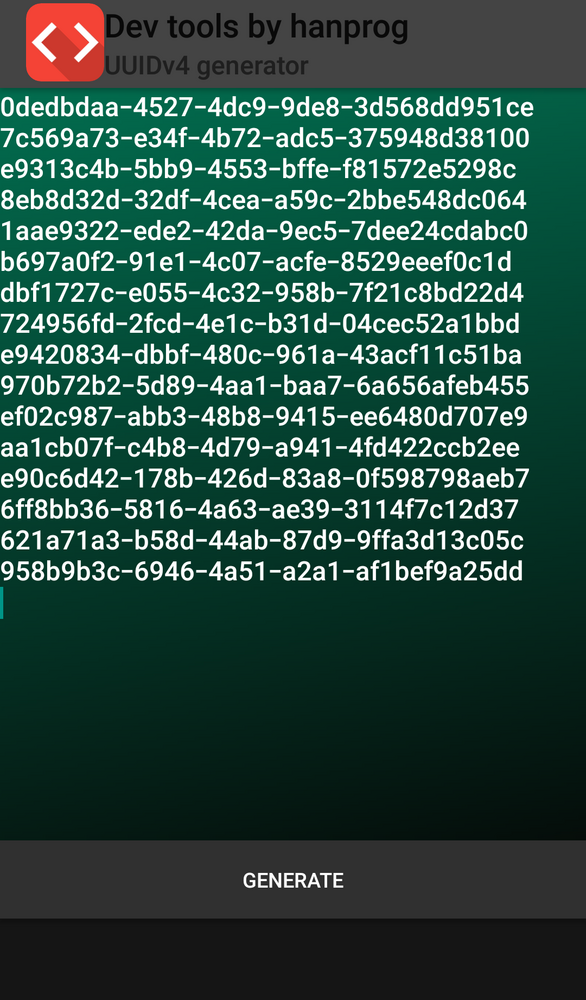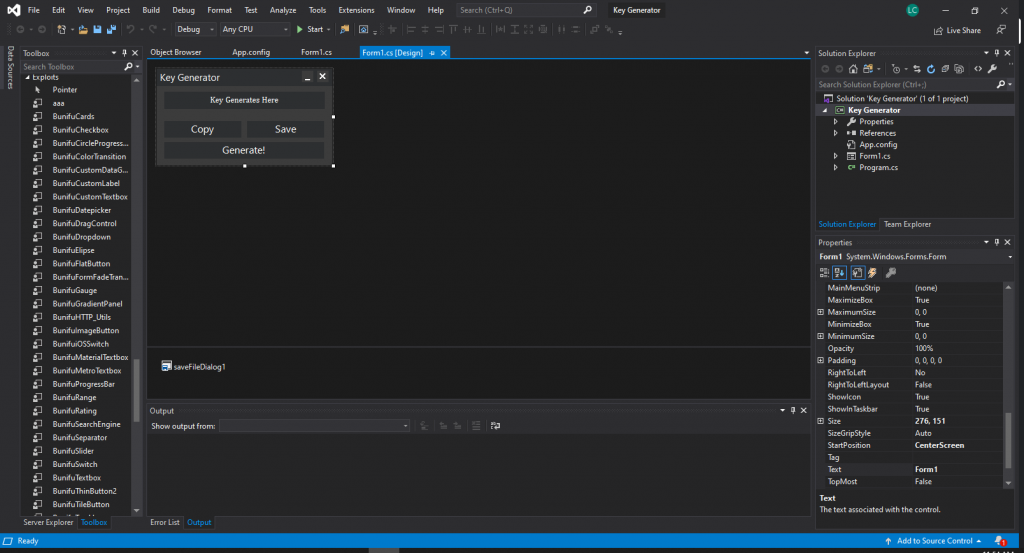

- #Game uuid generator install
- #Game uuid generator generator
- #Game uuid generator upgrade
- #Game uuid generator code
As orders come in, we want to assign them an id number and store them in our orders table using that number. To answer this question, let’s imagine we’re operating an ecommerce bookshop.

(Technically, it’s not impossible that the same UUID we generate could be used somewhere else, but with 340,282,366,920,938,463,463,374,607,431,768,211,456 different possible UUIDs out there, the chances are very slim).

UUIDs are widely used in part because they are highly likely to be unique globally, meaning that not only is our row’s UUID unique in our database table, it’s probably the only row with that UUID in any system anywhere. What is a UUID?Ī UUID – that’s short for Universally Unique IDentifier, by the way – is a 36-character alphanumeric string that can be used to identify information (such as a table row). Instead, it’s a good idea to assign each row some kind of unique identifier. We wouldn’t want to use fields such as name or address as unique identifiers because it’s possible more than one customer could have the same name, or share the same address. You can achieve it by passing the following JVM argument to your application during startup: =file:/dev/.When working with a database, it’s common practice to use some kind of id field to provide a unique identifier for each row in a table. However, it has the downside of reduced security due to less randomness. ‘/dev/urandom’ is another special file that is capable of generating random numbers. You can configure it to use ‘/dev/urandom’ instead of ‘/dev/random’. Java uses this file to generate random numbers. Unix-like operating systems come up with special file ‘/dev/random’ that serve as pseudorandom number generators.
#Game uuid generator install
On Redhat platforms (RHEL, Fedora, CentOS): sudo yum install rng-toolsģ. On Debian based platforms (Debian, Ubuntu): sudo apt-get install rng-tools Here is the ‘Haveged’ project GIT repository page.
#Game uuid generator generator
The ‘ haveged project‘ is meant to provide an easy-to-use, unpredictable random number generator based upon an adaptation of the HAVEGE algorithm. If your application is running in Linux, then you consider installing the ‘haveged’ library.
#Game uuid generator upgrade
So, if you can upgrade your JDK, please do so. However, it’s been fixed since JDK8u112 or JDK9b105. This problem is stemming because of a known bug in Java. If this problem surfaces in your application, the following are the potential solutions to address them: 1. Thus it was making the application unresponsive. You can notice that the thread got into a BLOCKED state when invoking ‘#randomUUID()’ due to a lack of ‘entropy’ and unable to progress forward. (ExecuteThread.java:221)įig: Stack trace of a thread stuck while making ‘#randomUUID()’ API call securedExecute(WebAppServletContext.java:2273) AuthenticatedSubject.doAs(AuthenticatedSubject.java:321) $ServletInvocationAction.wrapRun(WebAppServletContext.java:3730) (SecureRandom.java:433)Ĭom.topComponentMethodBbuggycompanyin(RootTracer.java:439) Below is the stack trace of one of that 50 threads: " ExecuteThread: '1' for queue: ' (self-tuning)'" waiting for lock BLOCKED In these 102 threads 50 threads are in the BLOCKED state due to ‘#randomUUID()’ API call. In the thread dump report, you can notice that there are 102 threads in total. (Note: in the thread dump report, we have changed the package name to ‘buggycompany’ to hide the identity of the application). It would give the better context of the problem. If you haven’t clicked on the hyperlink in the previous sentence, we request you do so. Here is a real-world thread dump report of an application that was suffering from this problem. Real world application – 50 threads BLOCKED in #randomUUID() API
#Game uuid generator code
If your application uses ‘#randomUUID()’ API in a critical code path and there is a lack of entropy in the operating system, then multiple threads can enter into this BLOCKED state bringing your entire application to a grinding halt.


 0 kommentar(er)
0 kommentar(er)
